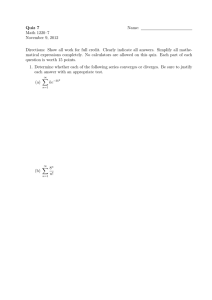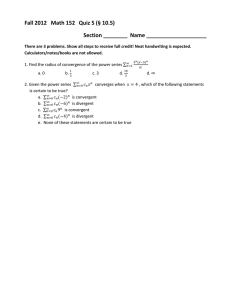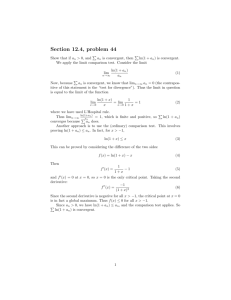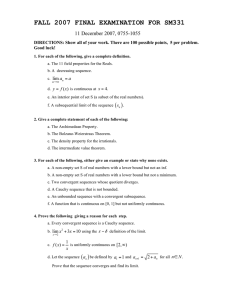Document 12133431
advertisement
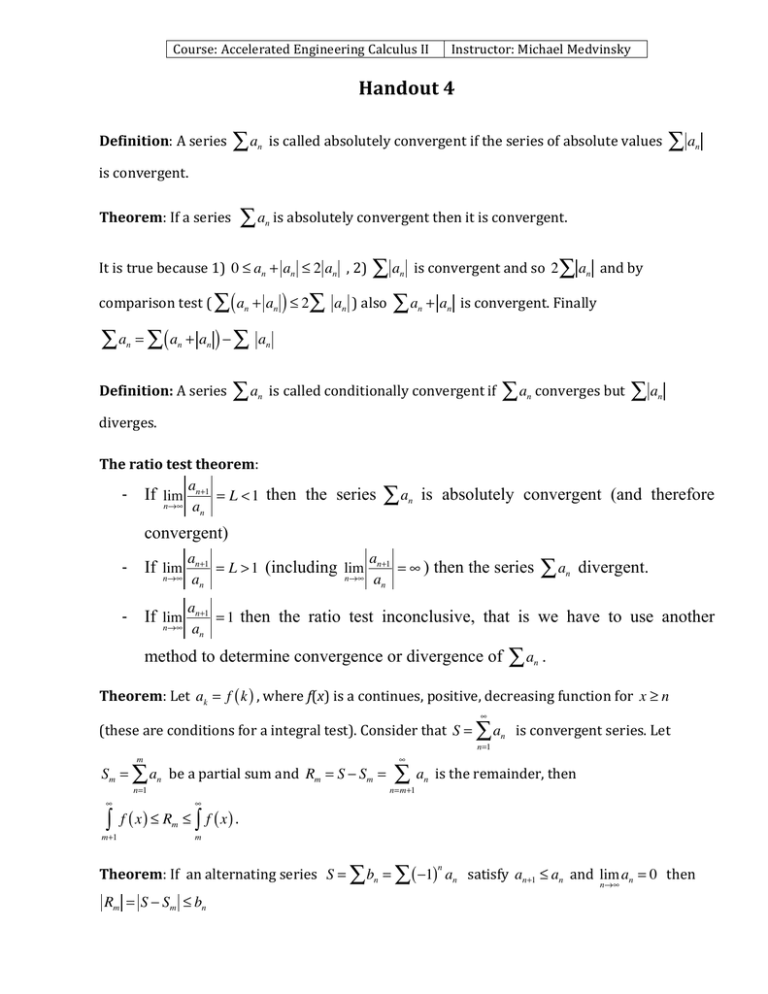
Course: Accelerated Engineering Calculus II Instructor: Michael Medvinsky Handout 4 Definition: A series ∑ an is called absolutely convergent if the series of absolute values ∑ an is convergent. Theorem: If a series ∑ an is absolutely convergent then it is convergent. It is true because 1) 0 ≤ an + an ≤ 2 an , 2) ∑ an is convergent and so 2∑ an and by comparison test ( ∑ ( an + an ) ≤ 2∑ an ) also ∑ an + an is convergent. Finally ∑ a = ∑(a n n + an ) − ∑ an Definition: A series ∑ an is called conditionally convergent if ∑ an converges but ∑ an diverges. The ratio test theorem: a -­‐ If lim n+1 = L < 1 then the series n→∞ a n ∑a n is absolutely convergent (and therefore convergent) -­‐ If lim n→∞ an+1 a = L > 1 (including lim n+1 = ∞ ) then the series n→∞ an an -­‐ If lim n→∞ an+1 = 1 then the ratio test inconclusive, that is we have to use another an method to determine convergence or divergence of ∑a n ∑a n divergent. . Theorem: Let ak = f ( k ) , where f(x) is a continues, positive, decreasing function for x ≥ n ∞ (these are conditions for a integral test). Consider that S = ∑ an is convergent series. Let n=1 m Sm = ∑ an be a partial sum and Rm = S − Sm = n=1 ∞ ∫ f ( x) ≤ R m m+1 ∞ ∑a n is the remainder, then n=m+1 ∞ ≤ ∫ f ( x ) . m n Theorem: If an alternating series S = ∑ bn = ∑ ( −1) an satisfy an+1 ≤ an and lim an = 0 then n→∞ Rm = S − Sm ≤ bn
